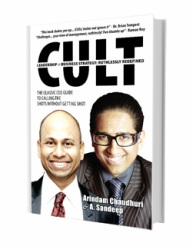On the face of it, I feel too excited about the idea of right to education for all. But then, whether this act is actionable, given the current education infrastructure of India, remains extremely doubtful. However hard the RTE might try to impart free education, it would never be able to achieve its objective, without enough service providers. And this brings me to my first concern – the RTE has already made it compulsory for all schools to maintain a student to teacher ratio of 30:1. Various pan-India surveys indicate that currently schools are struggling with a ratio of 50:1 (and some schools with 80:1), not to rule out those schools which are running with just a single teacher! With 5.23 lakh teachers’ positions vacant, the attainment of such globally-practiced ratios seems quite challenging. Add to this an equal amount of untrained teachers at the primary level, who have to be trained to match the qualification prescribed by the RTE within the next five years!
Now, the second challenge for RTE is its objective of making it compulsory for all private, unaided and minority schools to reserve 25 percent of total seats in elementary education for underprivileged and financially weak children. In order to make it actionable, the act clearly underlines that any breach of this clause would lead to stringent financial and legal punishments. No doubt, this is a clear attempt to eliminate the economic quandary that in most of the cases comes as a hurdle in any underprivileged child’s elementary education. But again, the problem is that the act does not talk about any concrete mechanism or model that would facilitate in pinpointing such pockets of population; in fact, there is no actionable model to ensure that this clause is not abused. Even if through some mechanism, the underprivileged section of the society is targeted and a handful of underprivileged children somehow manage to get into private schools, it still does not serve the purpose, as here again there are challenges. These so called reserved seats, that promise free education, would only give relief from tuition fees and not from other expenditures – which are quite considerable. The RTE does not consider the cost of school books, education tools, co-curricular fees, extra tuition needed and fees demanded in other development activities, which are quite high in good private schools. According to an ASSOCHAM survey, the costs of sending a child to school in India have risen by whopping 160 percent in the last 8 years and annual school expenses for a single child excluding tuition fees have risen by three folds, while the average annual income of middle class parents has hardly risen by 30 percent or so. So the entire purpose of the RTE would fail as the parents of these children will never be able to bear the extra expenditure. And the drop-out rates would continue. Read More....
For More IIPM Info, Visit below mentioned IIPM articles.
IIPM B-School Detail
IIPM makes business education truly global
IIPM’s Management Consulting Arm - Planman Consulting
Arindam Chaudhuri (IIPM Dean) – ‘Every human being is a diamond’
Arindam Chaudhuri – Everything is not in our hands
Planman Technologies – IT Solutions at your finger tips
Planman Consulting
Arindam Chaudhuri's Portfolio - he is at his candid best by Society Magazine
IIPM ranked No 1 B-School in India
domain-b.com : IIPM ranked ahead of IIMs
IIPM: Management Education India
Prof. Rajita Chaudhuri's Website
------------------------------------------------------------------------------------------------------------------

 RSS Feed
RSS Feed